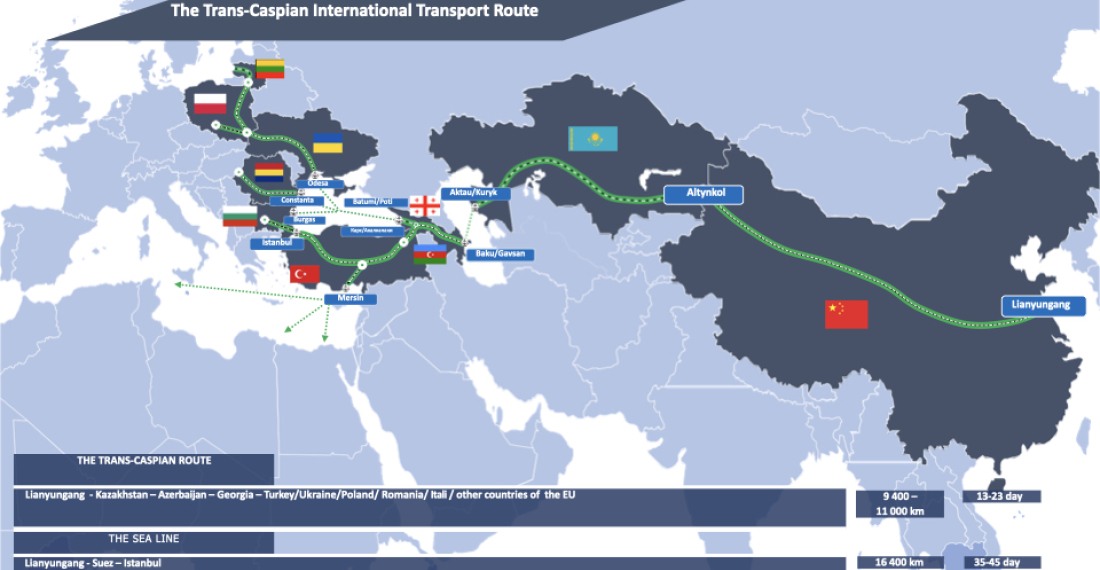On Wednesday (1 October), Almaty hosted a high-level summit attended by delegations from Azerbaijan, Georgia, Kazakhstan, and Turkey to coordinate measures to improve the Trans-Caspian International Transport Route (TITR), also known as the Middle Corridor. The meetings produced a series of agreements intended to streamline logistics, boost infrastructure, and unify tariff policies along the corridor.
At the summit, the countries signed an action plan designed to eliminate bottlenecks along the TITR. Under the plan, national railway companies of Kazakhstan, Azerbaijan and Georgia agreed to coordinate measures to facilitate cargo movement, including through harmonised scheduling and operational alignment.
To bolster maritime capacity, the European Bank for Reconstruction and Development (EBRD) and the European Union pledged financing (up to €45 million) for upgrades at the Aktau port in Kazakhstan. The modernisation will include the acquisition of new ship-to-shore cranes, the extension of two berths, and the creation of dedicated container terminals.
The TITR serves as a crucial alternative trade route connecting China and Central Asia to Europe, bypassing reliance on Russia’s northern corridors. In recent years, cargo volumes along the corridor have surged: Kazakhstan alone reported a sixfold increase in transit volumes over five years. Moreover, reports indicate that Kazakhstan’s segment of the corridor experienced a 62 per cent year-over-year growth in container traffic, reaching 4.5 million tons.







